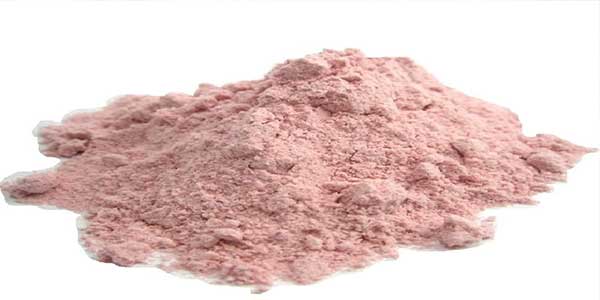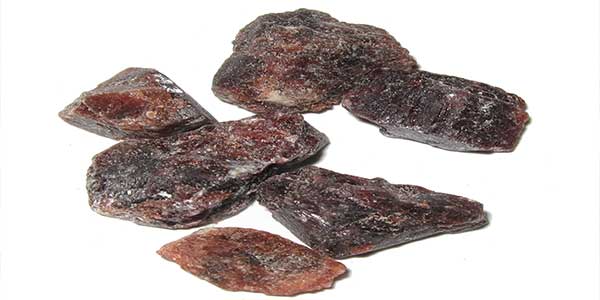Black salt, also known as Kala Namak, is a special type of rock salt that is widely used in cooking, particularly in Indian and other South Asian cuisines. It is known for its unique flavor and distinctive aroma. In this comprehensive article, we will delve into the various aspects of black salt, including its uses, qualities, origin, sources, applications, health benefits, use in cooking, how to use it, and potential side effects.
1. Introduction to Black Salt (Kala Namak):
Black salt, or Kala Namak in Hindi, is a mineral-rich variety of rock salt that is found in certain regions of India, Pakistan, and other parts of the world. It is obtained from natural salt deposits and is composed primarily of sodium chloride (NaCl) along with other trace minerals and compounds.
2. Qualities and Appearance:
Black salt has a distinctive pinkish-gray or purple color, which comes from the presence of trace minerals like iron and other compounds. Its granular texture is slightly coarse, similar to regular table salt, but it may also come in powdered form.
3. Origin and Sources of Black Salt (Kala Namak):
Black salt has been used for centuries in South Asian cuisines, particularly in India. It is primarily sourced from salt mines in the regions of India, Pakistan, and Nepal. These mines contain large deposits of rock salt, from which black salt is extracted.

4. Uses and Applications of Black Salt (Kala Namak):
Black salt is highly versatile and finds its application in various culinary preparations. Here are some common uses of black salt:
4.1 Culinary Uses:
Enhancing flavors: Black salt is known for its pungent and distinctive flavor, often described as slightly sulfurous or eggy. It is used in small amounts to add a unique taste to dishes, especially in vegan or vegetarian recipes, where it provides an umami-like flavor.
Chaat and street foods: Black salt is a key ingredient in many Indian street foods and chaat dishes. It is sprinkled over fruits, salads, snacks, and various street-style savory snacks to enhance the overall flavor profile.
Chutneys and pickles: Black salt is used in the preparation of chutneys, pickles, and spice blends to impart a tangy and savory taste.
Vegan egg substitute: Due to its distinctive sulfurous flavor, black salt is sometimes used as a vegan alternative to eggs in certain recipes, such as tofu scrambles or vegan egg salad.

4.2 Ayurvedic and Medicinal Uses of Black Salt (Kala Namak):
Digestive aid: In Ayurvedic medicine, black salt is believed to aid digestion and improve gastrointestinal health. It is often used in various herbal remedies and digestive tonics.
Detoxifying properties: Black salt is considered to have detoxifying properties and is used in Ayurveda for its potential to balance electrolytes and remove toxins from the body.
Respiratory health: Some traditional practices use black salt for respiratory health, particularly to alleviate symptoms of cough, cold, and asthma.
5. Health Benefits of Black Salt:
Black salt offers several potential health benefits, mainly due to its mineral content. While these benefits are largely anecdotal and not scientifically proven, they are widely recognized in traditional medicine systems. Here are some potential health benefits associated with black salt:
5.1 Digestive Health:
It may improve digestion and relieve digestive issues like bloating, indigestion, and acidity.
Black salt is believed to stimulate the production of digestive enzymes, aiding in the breakdown of food.
5.2 Electrolyte Balance:
Black salt contains essential minerals like potassium, magnesium, and calcium, which are important for maintaining electrolyte balance in the body.
It may help regulate blood pressure and prevent muscle cramps.
5.3 Respiratory Support:
Some traditional practices use black salt for respiratory health, particularly to alleviate symptoms of cough, cold, and asthma.
The inhalation of black salt vapors is believed to have a beneficial effect on the respiratory system.
6. Use in Cooking and How to Incorporate Black Salt:
Black salt is primarily used as a finishing salt, meaning it is added at the end of the cooking process to enhance the flavors of the dish. Here are some tips on how to use black salt in your cooking:
Sprinkle a pinch of black salt over fresh fruits like mangoes or watermelon for a unique flavor twist.
Use it as a seasoning in salads, chaats, and street foods to add a tangy and savory taste.
Incorporate black salt in spice blends, chutneys, and pickles to enhance their flavors.
Experiment with using black salt in vegan or vegetarian recipes to add a hint of “eggy” flavor.
Remember that black salt has a strong flavor, so start with a small amount and adjust according to your taste preferences.

7. Potential Side Effects and Precautions of Black Salt (Kala Namak):
While black salt is generally considered safe for consumption, it’s important to keep in mind the following precautions:
Sodium intake: Black salt, like other types of salt, contains sodium. Excessive sodium intake can be harmful, particularly for individuals with high blood pressure or certain health conditions. It’s crucial to consume black salt in moderation as part of a balanced diet.
Iodine deficiency: Unlike iodized table salt, black salt does not contain added iodine. If you rely solely on black salt for your salt intake, it may not provide sufficient iodine, which is important for thyroid function. Ensure you have other sources of iodine in your diet.
Allergies or sensitivities: Some individuals may be allergic or sensitive to certain minerals or compounds present in black salt. If you experience any adverse reactions, discontinue use and consult a healthcare professional.
As with any dietary ingredient, it’s recommended to consult with a healthcare professional or a registered dietitian if you have specific health concerns or questions.
8. Conclusion
In conclusion, black salt (Kala Namak) is a unique and flavorful ingredient used in various cuisines, particularly in South Asian cooking. It offers a distinct taste and potential health benefits. However, moderation is key, and it’s important to consider individual health conditions and dietary needs. Incorporate black salt mindfully into your cooking and enjoy the flavors it brings to your dishes.